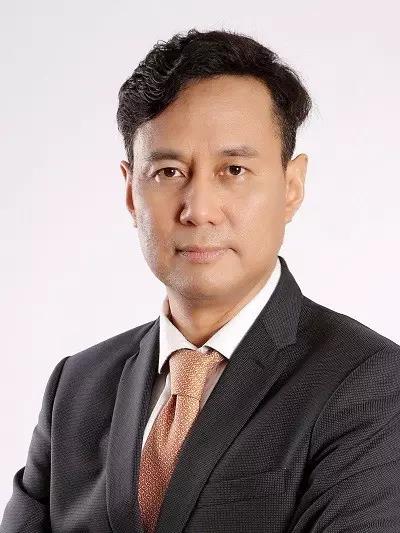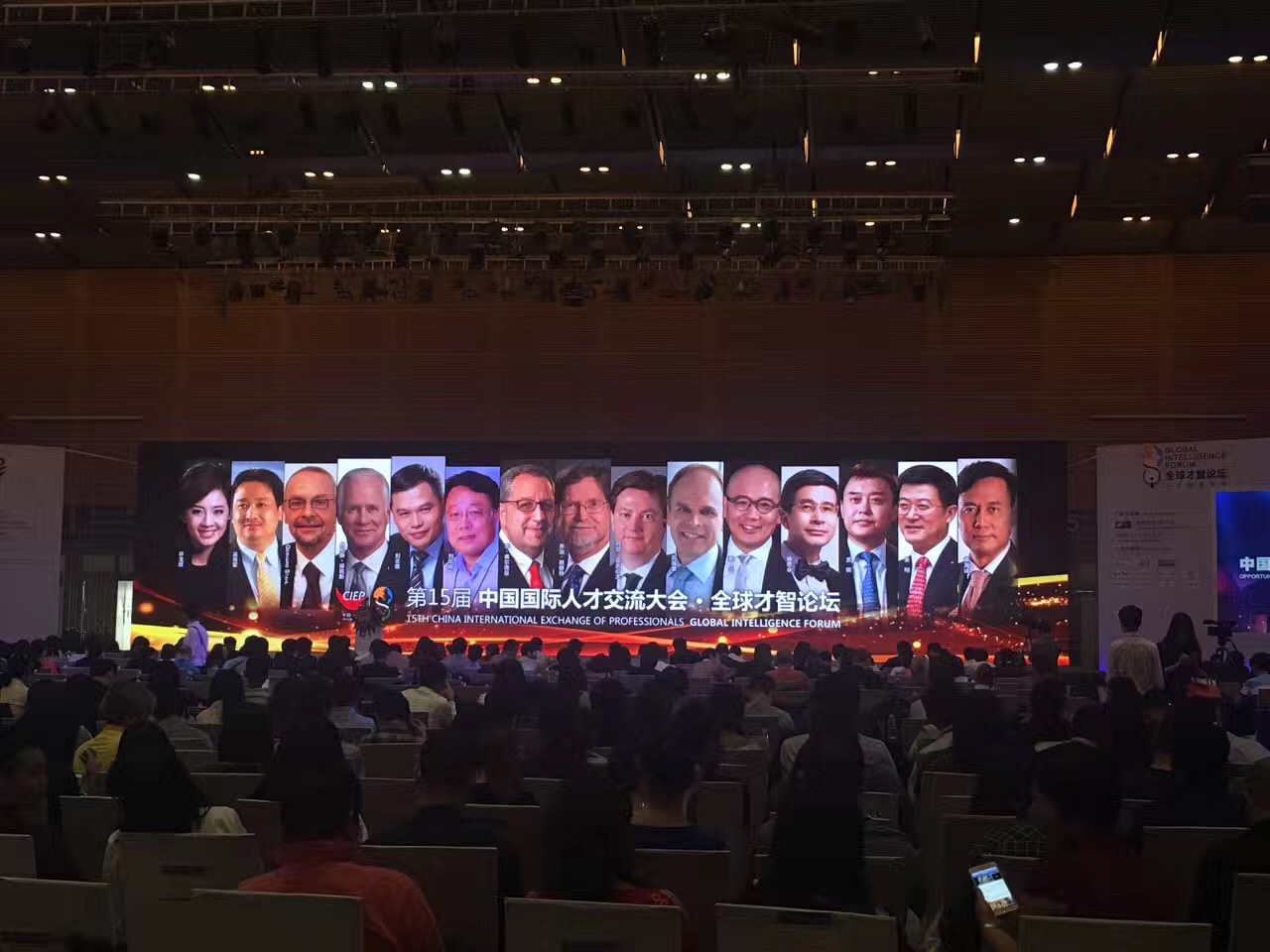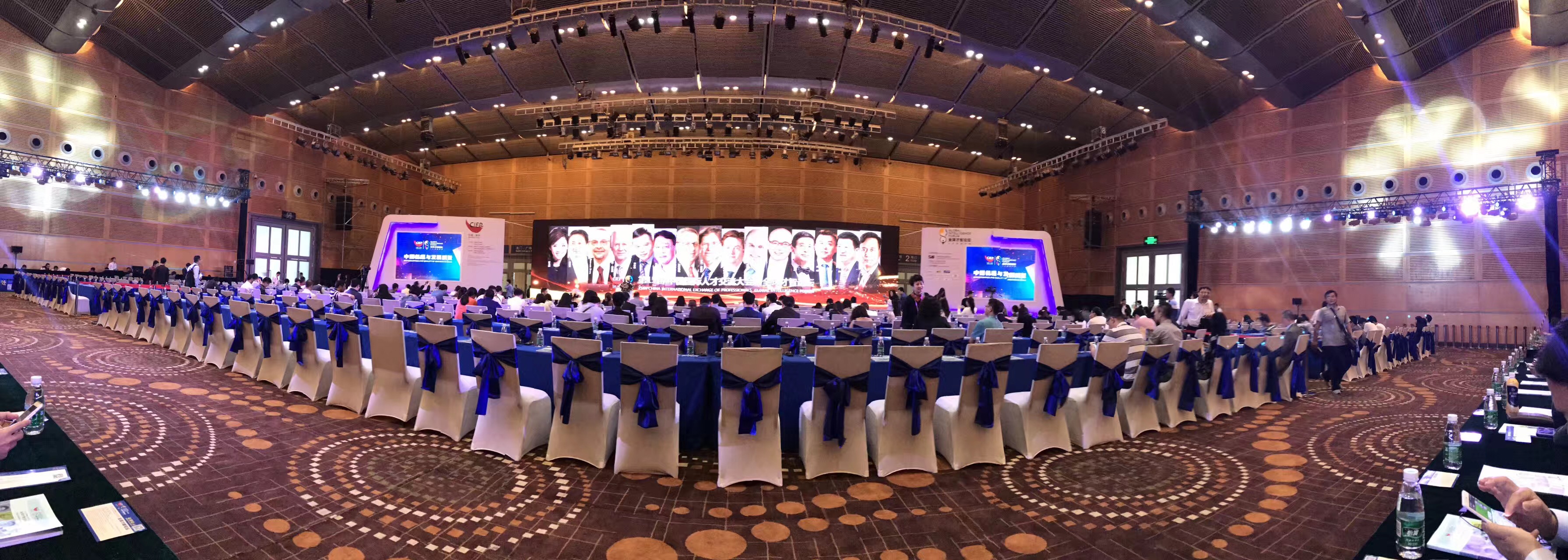“Huang Haifeng, Ph.D. of Humboldt University, Germany, assistant dean and professor at Peking University HSBC Business School (PHBS). At the Global Intelligence Forum held on April 15, Professor Huang gave a keynote speech entitled "The Impact of China's Green Transformation on Social Development". The following is a speech excerpt.
The Secret of Cultivating Future Business Leaders
When it comes to leaders in business in the 21
st century,
the question is how do we comprehend their Intelligence Quotient? To understand that, we first need to redefine the concept of an Entrepreneur.
Richard Cantillon (1680-1734), a French economist was the first to introduce the term “Entrepreneur” in his work An Essay on Economic Theory. An entrepreneur is a professional that attempts to set up a new business, possesses the spirit of innovation and struggles to bring about a change that is hitherto non-existent. Entrepreneurial Spirit, as the essence of entrepreneur’s specific techniques including spirits and practical skills, is an essential and intangible production factor. In China’s economic transition, entrepreneurial spirit is critical to its transition from Wealth Economy to Philanthropic Economy.
Intelligence is derived from the accumulation of knowledge, which not only stems from university education but also from social practice. Many entrepreneurs here may not have a systematic education in college and some acquire intelligence from social practice. All in all, today we will discuss three topics, to explore the secret of cultivating business leaders in the future and to understand the true meaning of life.
Standard of Talents in University
For the current generation, university plays a crucial role in cultivating talents. There is no doubt that university is a cradle of future talents. So, what is the standard of being a talented individual in university?
How can we cultivate a talent which can exert a positive impact on society? From the beginning of 1990s, I have been studying and working in university for 20 years. During this period, I’ve been invited to work as a consultant to companies from Germany, the United States and France, promoting business cooperation between China and foreign countries. Also, I have consistently been in charge of a governmental project and dealt with some top international cooperations; hosted the China-EU and China-USA academic forums; participated in drafting the
Green Economy Report of United Nations Environment Programme (UNEP), reviewing World Bank’s program and engaged in international consulting project for multinational enterprises. Besides, during this period I got the opportunity to communicate with many world-class leaders and famous
entrepreneurs and I found that all these people who contribute to promoting social progress have one common characteristic -- strong responsibility with both high IQ and EQ. In fact, the highest end of university education is not merely limited to passing on knowledge but also to enlighten students how to become a person with social responsibility, dedicating spirits and affections. The standard of being a talented individual in the 21st century, measured by
social responsibility, social contribution and degree of IQ and EQ, has become a consensus throughout different communities.
The Connotation of Life
In order to understand the content of life, we should understand the
Three States of Life. People are born to own
Life, embrace
Life during college study and social experience and sublimate
Life (raise the sense of duty) by combining individual life with social developments, personal responsibilities and social contributions. Besides these
Three States of Life, to become a talented individual who can exert an influence on the society, three cultural rules become necessary to be obeyed --
Honesty,
Promise and
Morality. It is also important to bear in mind
Reverence,
Compassion,
Gratitude and
Tolerance. For an excellent entrepreneur, credit brings the competitive edge, meeting promise brings charisma and morality brings great influence, which appeal to the talents of the same kind.
In conclusion, the
Three States of Life describe the measure of leadership;
Honesty,
Promise and
Morality, as three codes of conducting methods, present the thickness of leadership;
Reverence,
Compassion,
Gratitude and
Tolerance, the four aspects of mind, draw the broadness of leadership, in which
Tolerance helps us works with our boss, colleges as well as understanding our own needs and limitations. Even when we are faced with adversity, which is sure to come, we should learn to seize the opportunities to climb over these obstacles. This will turn the new chapter of life.
Nowadays, it’s unfortunate for some
entrepreneurs to pass away even at age of around 40 just because of high pressure from work. Therefore, both sustainable development of society and continuable development of individual life require attention and concern
. The research topics of business colleges should not only include the product life cycle and the strategic positioning of the enterprises, as well as the life expectancy and positioning of human. As a brand new research field for them, the art of life will help give full play to the human potential. If every
entrepreneur can prolong the life for 10 or 20 years, it will yield a lot of contribution to the whole society.
True Art of Leadership
The nature of leadership, is not to make leaders condescending and unpredictable, but to showcase their humanity. Catharine Drew Gilpin Faust, the president of Harvard University, emphasized that
Humanistic education plays an important and irreplaceable role in efficient leadership when she was invited to visit The United States Military Academy. Thus, school education should lay more emphasis on cultivating people’s personality, morality and emotion and make sure that the educated will not ignore others’ life, external affairs and human poverty. Chuang Tzu, one of China’s greatest philosophers, says that
No sadness is worse than the total loss of feelings. The one who shows no mercy to the outside world is hopeless and a leader with no respect to life may become the demon doing harm to human.
What is the true art of leadership? Klaus Schwab, the founder and executive chairman of World Economic Forum points out that
There are four ingredients in true leadership: brains, soul, heart and good nerves. Just like the complicated capillary system which speeds up the metabolism of body, the art of leadership can enhance leadership abilities, promoting the valuable transformation from quantitative accumulation to quality and upgradation of the enterprise. The transformation is presented from two aspects: On the one hand, the art assists in the transformation from pursuing visible production value to intangible service value. On the other hand, the art helps to transform from pure business value to the focus on individual life value.
There is a group of outstanding entrepreneurs gathering in Shenzhen. Like Huawei, Tencent and Beijing Genomics Institute (BGI), they have achieved the transformation of focus from business value to the value of life. Every time I communicate with those top managers from these companies, I realize that these entrepreneurs have succeeded in emphasizing the value of life more than business achievement. During my visit in the headquarters of Sany Heavy Industry Co., LTD in Changsha, Hunan province, it occurred to me that this company attaches equal importance to producing quality products from China and making a mark in global manufacturing. Sany believes in the motto
Quality changes the world as its corporate value and builds the positive image of Chinese enterprises in the world stage. Because these enterprises stick to the two points about transformation, a team would finally achieved value sublimation from outside to inside and team members would establish a core value outlook, consisted of
self-cultivation rooted in heart, self-discipline without reminding, freedom with the prerequisite of caution and kindness of being considerate for others (Ronghuan Zhang, Concept of Culture, 2007). This is the art of leadership that can make enterprises develop sustainably.
In conclusion, when judging a talent’s accomplishment, we should consider what he or she has achieved in the past. More importantly, we should investigate whether he or she had done something that crosses the line of morality. Evaluating an enterprise’s development, the old Chinese sayings,
God rewards the diligent and
People gather with money scattered illustrate the secret of developing such values.
God rewards the diligent suggests that at the beginning of starting a business, enterpreuners lack money and when they spare no effort in making progress, it will boost the development of the career inherently;
People gather with money scattered means that when an enterprise owns enough capital, it should establish a rational mechanism of profit distribution to attract talent. Hence, in the present generation, business schools should not only encourage students to create wealth but also educate them to understand and master the true meaning of developing Quality Talent in University, The Connotation of Life and True Art of Leadership, so that they can become ethical business leaders to promote the sustained development of society in the future.

















